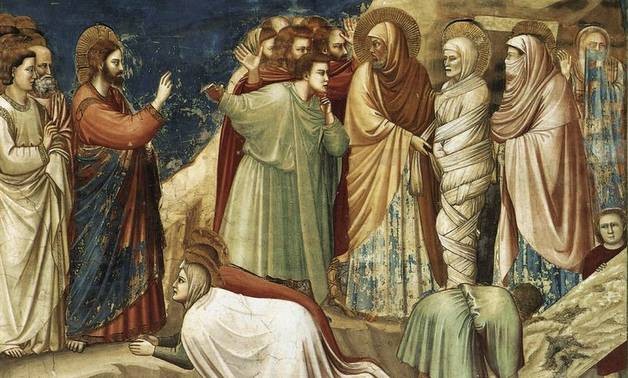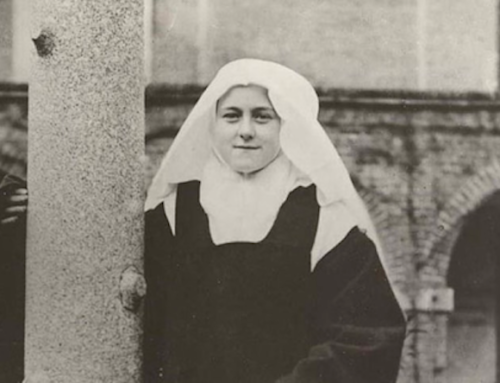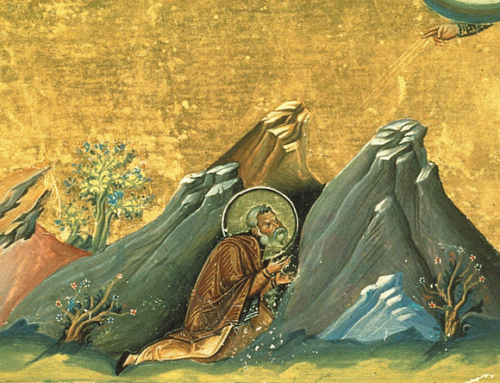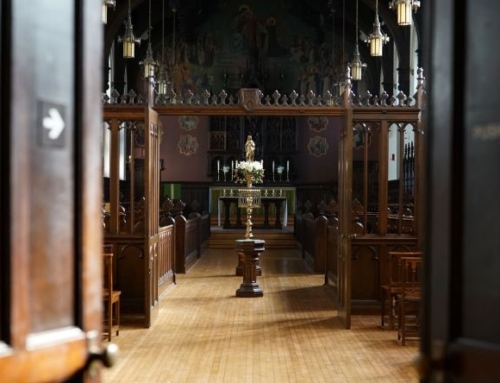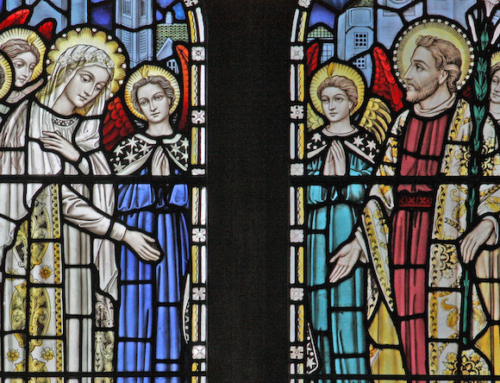“The dead man came out, tied hand and foot with burial bands, and his face was wrapped in a cloth. So Jesus said to them, “Untie him and let him go” (Jn 11:44).
“Sin directs the heart of a wicked man,” reads Psalm 36. We spend our lives struggling to master our passions and avoid temptations, yet we fall time and time again. Though every sin is an offense against God’s perfect goodness, some of our failures are more serious than others. The Catholic tradition generally divides actual sins (those committed by our own free will) into two categories: mortal (grave sin) and venial (less serious sin).
Mortal sins are offenses that concern grave matter, and are made with full knowledge and deliberate consent. Baptism removes both the guilt and the punishment due to original sin, as well as all personal sin in baptism received after infancy. The grave personal sins we commit after baptism, however, incur both guilt (responsibility for sin) and punishment (the exercise of Divine justice). These sins entirely remove God’s grace in the soul, and “mortally wound” the supernatural love that grace creates in our souls. Venial sins, though they do not kill the life of grace as mortal sin does, yet damage the life of grace and charity in our souls as though inflicting a flesh wound. God offers to forgive even the darkest of sins, and seeks not only to restore the life of grace in our souls, but also to make it richer than before. It is Christ alone who restores this life in us, though He does it through the ministry of the priesthood.
There are three people in the New Testament who return to a mortal, earthly life after death at Jesus’ command: the widow’s son (Lk 7:11-17), Jairus’ daughter (Lk 8:40-56), and Lazarus (Jn 11:1-44). The widow’s son was being carried out of the city in a coffin, and Jairus’ daughter had been lying in a bed. Lazarus, on the other hand, had been bound and prepared for burial. Nothing is written of what happens after the boy is raised—Jesus gives no instruction to the widow or the people. When Jairus’ daughter is raised, Jesus tells those present to “give her something to eat.” But because Lazarus had already been wrapped in burial cloths and bound, Jesus commands those present at Lazarus’ tomb to “Untie him and let him go.” Something profound about our restored life can be taken from all three of these scenes.
Let us consider these deaths as analogies for spiritual death, being “dead” in mortal sin. First, each deceased person is raised or returned to life on account of intercession by others—the dead cannot pray for themselves! Likewise, those who have committed mortal sin still participate in the life of grace of the universal Church, which assists them on their journey back to God. Second, as in the account of Jairus’ daughter, returning to life necessitates nourishment. Our return to life is aided by food—namely, the spiritual food of the sacraments and the Word of God. Third, as with Lazarus, returning to life is not the end of the ordeal, but the beginning of healing. We must receive the help of others before we can return to life. Even after we begin to experience new life in grace, attachments to sin and the habits of vice remain, like Lazarus’ burial cloths. Here again we rely on the ministry of the Church and the prayers of her children to help us in this struggle. Finally, Jesus demands that His friend Lazarus be “let go.” We are freed from what kept us bound only if we take responsibility for our faith and life in the Church. Through prayer, penance, and charitable works, we begin to repair the damage we have done—though this effort is made fruitful by Christ’s sacrifice.
The “rich fool” of the parable in today’s Gospel reading could be interpreted as someone whose selfish love cut him off from God’s grace. In failing to provide for others in their need, he failed to love his neighbor as himself, the second of the greatest commandments (Mark 12:28-31). When his life is demanded of him, God calls him a fool for storing up treasure on earth but not in heaven. What good is it to be a prudent steward or a shrewd investor if one lacks charity? Our lives can be taken from us at any time, and there is only so much warning, only so much preparation that can be done before we die and whatever we accumulated in this life is lost. Every pump of blood from the heart, every breath of air in the lungs, every second ticked away on the clock, and every material—and spiritual— thing we receive, we receive from God. Divine Providence has ordained that the wealth of some overflows and is to be shared by all. This distribution may even be the only way that those graces are given to others!
But God said to him, ‘You fool, this night your life will be demanded of you; and the things you have prepared, to whom will they belong?’ Thus will it be for the one who stores up treasure for himself but is not rich in what matters to God,” (Lk 12:20-21).
✠
Image: Giotto, Raising of Lazarus

